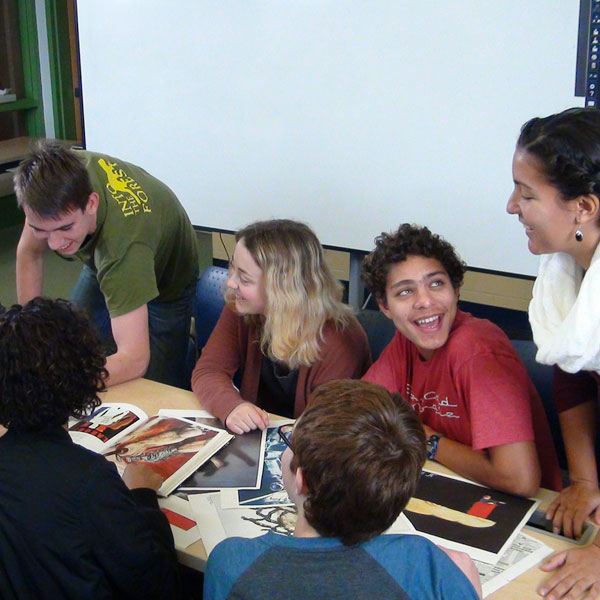Guides by Subjects/Grades
We have over 500 free lessons spanning all grade levels and a diverse array of topics.
Have you set up an account yet?
It’s free, and will allow you to access and download all of our curriculum materials!
Create Account
Search our extensive collection of free media literacy lessons
Our free media literacy materials are:
With diverse documents that engage students
Sorted by grade level and applicable for all students, especially non-print learners, Special Ed, and ESOL
Can be used in one class, in units, or across the curriculum
Designed by experts and tested by teachers and librarians
Tied to core content and standards
To deepen students’ understanding of the content you already teach
Check Out Our Newest Lessons
See an Activity in Action!
In this demonstration video, experienced educator, Chris Sperry, leads students in applying content knowledge about US wars in Vietnam, the Gulf and Afghanistan to the critical analysis of Newsweek Magazine covers through asking questions tied to lesson objectives.
Educator Developed, Standards-Aligned
The new C3 standards require a shift to inquiry-based methodologies that teach
students to ask questions, evaluate sources, provide evidence, and communicate well-reasoned
conclusions. The National Council for the Social Studies recent Position Paper on Media Literacy, co-authored by Project Look Sharp, illustrates how our materials and training address the shifts in pedagogy and instruction proposed by C3.
The new Next Generation standards emphasize the integration of critical thinking and literacy skills with core content instruction. Our approach, as outlined in this Science Scope article, requires students to apply scientific knowledge to the critical analysis of diverse and often conflicting representations of scientific information and to reflect on how their own biases impact their interpretation of information and assessment of the credibility of sources.
These standards require the integration of literacy skills into content area
instruction. This has been our focus for over 20 years!
These standards require teaching students to analyze and evaluate ALL media messages - in print, web sites, popular culture, entertainment, music and more. Use the Key Questions to Ask When Analyzing Media Messages to integrate the habits of critical thinking across the curriculum.



